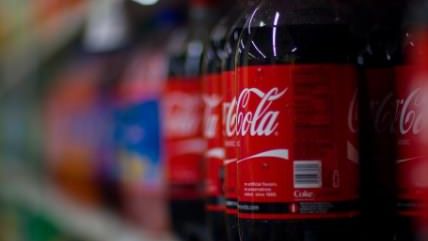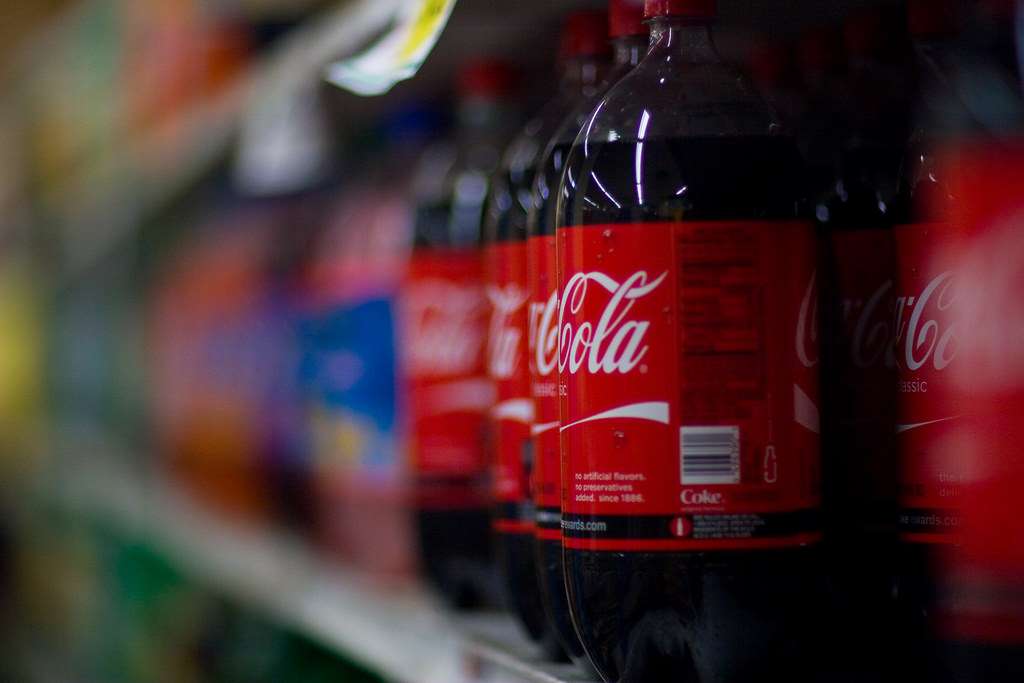San Francisco Sued Over Unconstitutional Soda Speech Restrictions
Three groups sued San Francisco to overturn a new city law that restricts the free-speech rights of those who make and market sweetened drinks like soda.


On Friday, three groups sued San Francisco to overturn a terrible new city ordinance that restricts the free-speech rights of those who make and market sweetened drinks like soda. The plaintiffs, the American Beverage Association, California Retailers Association, and California State Outdoor Advertising Association, are seeking immediate injunctive relief—to prevent the law from taking effect—and have asked the District Court to overturn the law.
The ordinance, which I discussed at various outlets shortly after it was proposed, requires mandatory warning labels to appear on all soda ads in the city, including those on billboards. The law requires that at least 20 percent of each ad's space read as follows: "WARNING: Drinking beverages with added sugar(s) contributes to obesity, diabetes and tooth decay."
That warning is shaky at best. "Mandatory 'added sugar' labeling may violate the First Amendment," I wrote here in March, before the San Francisco law had been proposed. "Use of the term 'added sugar' is misleading, as it creates a deceptive health halo around products like orange juice and apple juice, which are high in naturally occurring sugar but contain no added sugar."
While the ordinance compels that warning, it also contains a host of equally shocking restrictions on free speech. For example, the law would prohibit soda makers from identifying the products they sell while protesting against the law on public space. It bars ads advertising soda, Frappuccinos, or some Jamba juices on public property—including buses, parks, and bus stops—but allows, notably, ads attacking such drinks. It also engages in other forms of viewpoint discrimination. It contains vague and undefined terms, including "producing sugar-sweetened beverages." Those restrictions, the compelled speech, and other clear violations of bedrock First Amendment principles forced the American Beverage Association and its fellow plaintiffs to sue.
This is a case about ensuring that government can't restrict speech simply because it doesn't like that speech, and can't force a company to warn consumers off of its products without good reason. Such reasons don't exist in this case.
While the case is an important one for protecting our First Amendment rights, it's also an important case for upholding principles of food freedom. After all, what good is the right to produce and sell legal food if you can't also market the food to consumers? Clearly, this is a bad law that restricts the rights of soda companies and consumers.
Historically, courts have found the First Amendment prohibits the government from restricting free speech because it doesn't like the speaker's message. Courts have also struck down laws in cases, as here, where the government compels a speaker to substitute the words they would have said with ones the government forces upon the speaker.
Both types of First Amendment violations exist here. This should be an open-and-shut case. I think San Francisco should save its taxpayers money and repeal the law, rather than defend it in court.
Food makers have a First Amendment right to market a legal food product to potential consumers. Consumers have a right to hear that message. No government has the power to restrict those rights.
I've previously defended the First Amendment rights of PETA and Dr. Oz. Needless to say, those who make and market soda must enjoy those same First Amendment rights.
"The First Amendment violation here is direct and flagrant," the lawsuit notes. It also rightly describes these bedrock principles as part of "hornbook law," a reference to the fact almost any law student could, thumbing through their legal hornbook, likely describe how San Francisco's ban impermissibly restricts speech that is protected by the First Amendment.
"The Ordinance is precisely the kind of 'paternalistic' speech regulation that the courts have long condemned," the suit notes, calling the law "starkly incompatible with the First Amendment."
One thing I'll be watching closely is how the District Court rules on the question of whether an added-sugar warning is misleading. Your "body doesn't distinguish between natural or added sugars," reads a Harvard School of Public Health publication.
Despite that fact, the FDA has moved to require food labels list both total sugar (which is reasonable) and added sugar (which is, again, misleading). This case could find a federal court not only overturning San Francisco's unconstitutional free-speech ban but also siding against the flimsy arguments that compelled the FDA to propose its added-sugar label. Wouldn't that be sweet?
Editor's Note: As of February 29, 2024, commenting privileges on reason.com posts are limited to Reason Plus subscribers. Past commenters are grandfathered in for a temporary period. Subscribe here to preserve your ability to comment. Your Reason Plus subscription also gives you an ad-free version of reason.com, along with full access to the digital edition and archives of Reason magazine. We request that comments be civil and on-topic. We do not moderate or assume any responsibility for comments, which are owned by the readers who post them. Comments do not represent the views of reason.com or Reason Foundation. We reserve the right to delete any comment and ban commenters for any reason at any time. Comments may only be edited within 5 minutes of posting. Report abuses.
Please to post comments


This isn't a free speech issue. This is a public health issue.
/Sarc off
You sarc, but that is exactly how they intend to circumvent free speech.
Don't forget "corporations aren't people!!"
I am persistantly amazed that the people who say that can keep a straight face. I suppose it has simply never occurred to them that the same idea might be applied to, say, the New York times.
Of course, what they really mean is "Whaa! The common people aren't LISTENING to us. We KNOW BETTER than they do! It isn't FAIR!"
What makes me laugh is they don't understand what the legal rule "corporations are people" really means. It's a legal fiction that is essential to the corporation as a useful tool for investors and society in general. No ones arguing that they are human beings you idiots. Not to mention punishing a corporation is a just very large group of people (investors). What progs really mean is "businesses shouldn't have free speech" which is far more terrifying.
SF, a bastion of sexual freedom... And that's about it. Regulations on this city are overbearing in every possible respect, from street vending to zoning to nickel and dime taxing.
The rent out there blows my mind. Is $2000 a month for a shitty apartment worth it? Just insane.
The anti-pop ads in San Francisco are directed to "Big Soda". I shit you not.
When taxpayers are subsidizing your healthcare, they have an incentive to dissuade you from making unhealthy choices. Imagine what it would be like with full-on single-payer.
We don't have to. We can look at England.
If you are so dumb you dont know that Soda is not good for you already then how are you going to read the warning labels. Let people make thier own choices and live with the consequences. Fucking nany state bullshit.
But think of the poor (replace children) stupid people,.....Typical Lib talking point
The left thinks San Francisco citizens shouldn't be putting sugar in their soda while the right thinks they shouldn't be putting cream in their buns. Fascism is fascism wherever you find it.
SF says it is trying to "educate" its populace. But truth is - people are making choices in which government doesn't approve.
Everyone KNOWS the eating sugar and drinking sugar can make you fat (if you don't burn those calories) and can cause cavities (if you don't brush and floss ). But the folks are doing it anyway.
So - something DRASTIC has to be done. Submit, people of SF - it's for your own good.
Your honor, i'd like to forward the motion that if soda companies have to have this label, then all politicians and public servants are required to have clearly marked and visible tags on both the back and front, taking up no less then 20% ofeach side, saying that they are 100% full of shit
I propose a mandatory label taking up at least 20% of all government property and documents:
"WARNING: Government has been determined to cause war, deprivation of civil liberties, waste, fraud and corruption."
Speaking of misleading, it's a little misleading to talk about "open-and-shut cases" and "hornbook law" without mentioning the hornbook law on commercial speech. It isn't as if San Francisco is blazing entirely new trails here, as anyone who has bought a pack of cigarettes in the past 50 years (or who looked at an ad for cigarettes in the years when there were such things) could tell you. It might gave been instructive to hear just a bit about how the plaintiffs here would have to get precedents overturned that upheld laws mandating those kinds of compelled speech.
I understand the sentiments expressed in the article and the comments, but...
Aren't restrictions on cigarette and alcohol advertising also unconstitutional under the same reasoning? Cigarettes must carry a warning, alcohol products must carry a warning, etc.-- and those ads are banned under some circumstances.
And if you believe that cigarette and alcohol advertising restrictions are unconstitutional, why haven't they been struck down? The companies are lazy or playing it safe?
The courts consider it a compelling interest to reduce smoking and (excessive) drinking. Commercial speech is also subject to more limited protection so they view viewpoint-based regulations slightly less severely. But yes the same argument applies to tobacco and alcohol if we're being intellectually honest.
Start making cash right now... Get more time with your family by doing jobs that only require for you to have a computer and an internet access and you can have that at your home. Start bringing up to $8596 a month. I've started this job and I've never been happier and now I am sharing it with you, so you can try it too. You can check it out here...
http://www.jobnet10.com
Isn't the issue here whether we consider getting rid of soda to be a compelling interest on the level of cigarettes, which have virtually the exact same regulatory regime? That's a high hurdle to hit. Personally I think it's ridiculous.